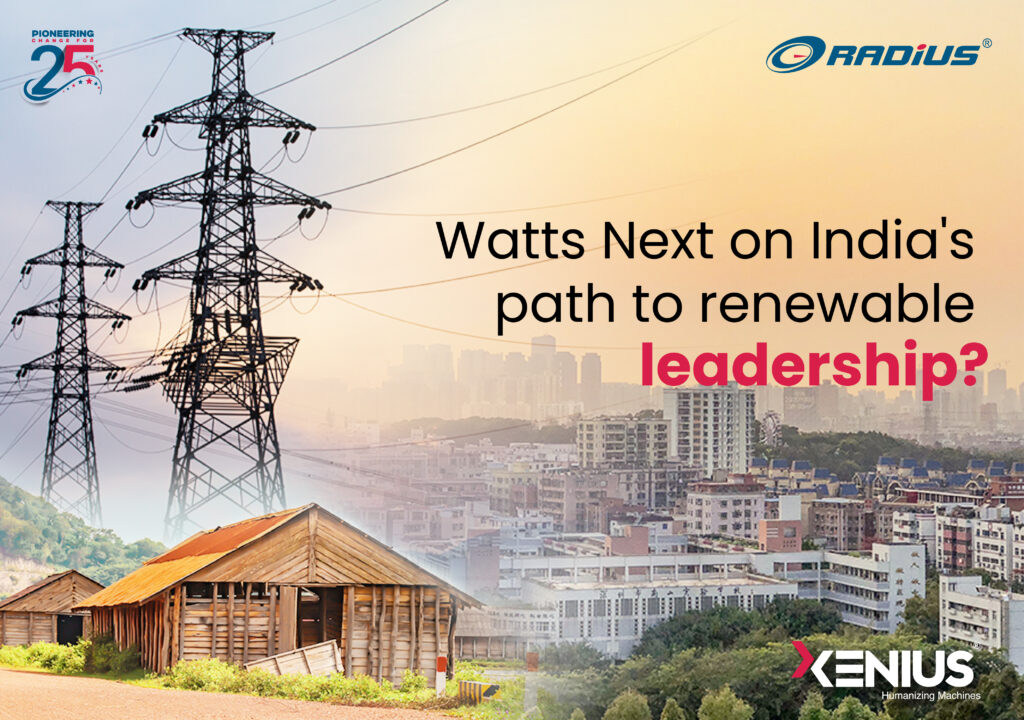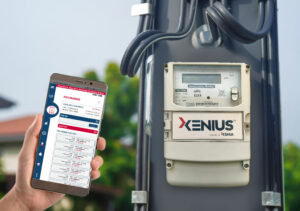India is on the cusp of an energy revolution and at its heart lies a groundbreaking initiative – the deployment of smart meters. With over 5.5 million already installed and an ambitious target to replace 250 million conventional electric meters with prepaid smart meters by 2025-26, the country is marching towards the crown of global renewable leadership. Harmonizing smart meters with India’s economic ambitions could electrify the country’s stride to becoming the third largest economy by 2023, based on the IMF’s projections as well as domestic estimates.
The strategic move of Smart Meters aligns with India’s dual commitment to economic growth and environmental sustainability. Raj Kumar Singh, the Union Minister of Power and Renewable Energy, envisions India as a global leader in renewable energy. The nation is rapidly becoming one of the largest solar module manufacturers globally and boasts a thriving ecosystem for wind energy. The growth in solar capacity positions India at the forefront of the renewable energy revolution.
In a remarkable achievement, India has surpassed its Nationally Determined Contributions (NDC) target of achieving 40% capacity from renewable sources well ahead of the 2030 schedule. Undeterred by this success, the government aims to elevate the bar, setting a new NDC goal of achieving a 50% capacity share from renewable energy, further accelerating the transition to sustainable power sources.
India’s commitment to renewable energy dates back to the 2016 Paris Agreement, where it pledged to produce 50% of its total electricity from non-fossil fuel sources by 2030. This commitment gained further momentum in 2018 when India’s Central Electricity Authority set an ambitious target of achieving 50% of total electricity from non-fossil fuel sources by 2030. Additionally, the nation aspires to an impressive 500 GW by 2030 from renewable energy.
Crucially supporting this monumental shift in India’s energy milieu is the smart metering system. These devices have emerged as transformative catalysts, revolutionizing the power sector. Smart meters empower consumers with real-time data, fostering energy conservation and efficiency. The prepaid nature of these meters enhances financial discipline and ensures a fair distribution of electricity resources.
By embracing smart meters, India is not only modernizing its energy infrastructure but also building a foundation for a sustainable and eco-friendly future. The meters play a pivotal role in demand-side management, helping balance energy consumption and reduce wastage. This real-time monitoring capability aids in optimizing energy distribution and enhancing the reliability of the power grid.
Conclusively, India’s journey towards energy sustainability and leadership in renewable sources is intricately tied to the widespread adoption of smart meters. These devices are not just technological upgrades from a dated system; they signify a commitment to a greener tomorrow, where economic progress harmonizes with environmental responsibility. As India continues to march towards its renewable energy goals, smart meters stand tall as silent architects of change, reshaping the nation’s energy landscape one efficient unit at a time.
DATA ATTRIBUTION :
https://www.thehindu.com/opinion/op-ed/switching-on-indias-smart-electricity-future/article66817146.ece
https://www.livemint.com/news/india/india-poised-to-become-global-leader-in-renewable-energy-with-growing-solar-manufacturing-and-ev-adoption-11690894068652.html
https://en.wikipedia.org/wiki/Renewable_energy_in_India












